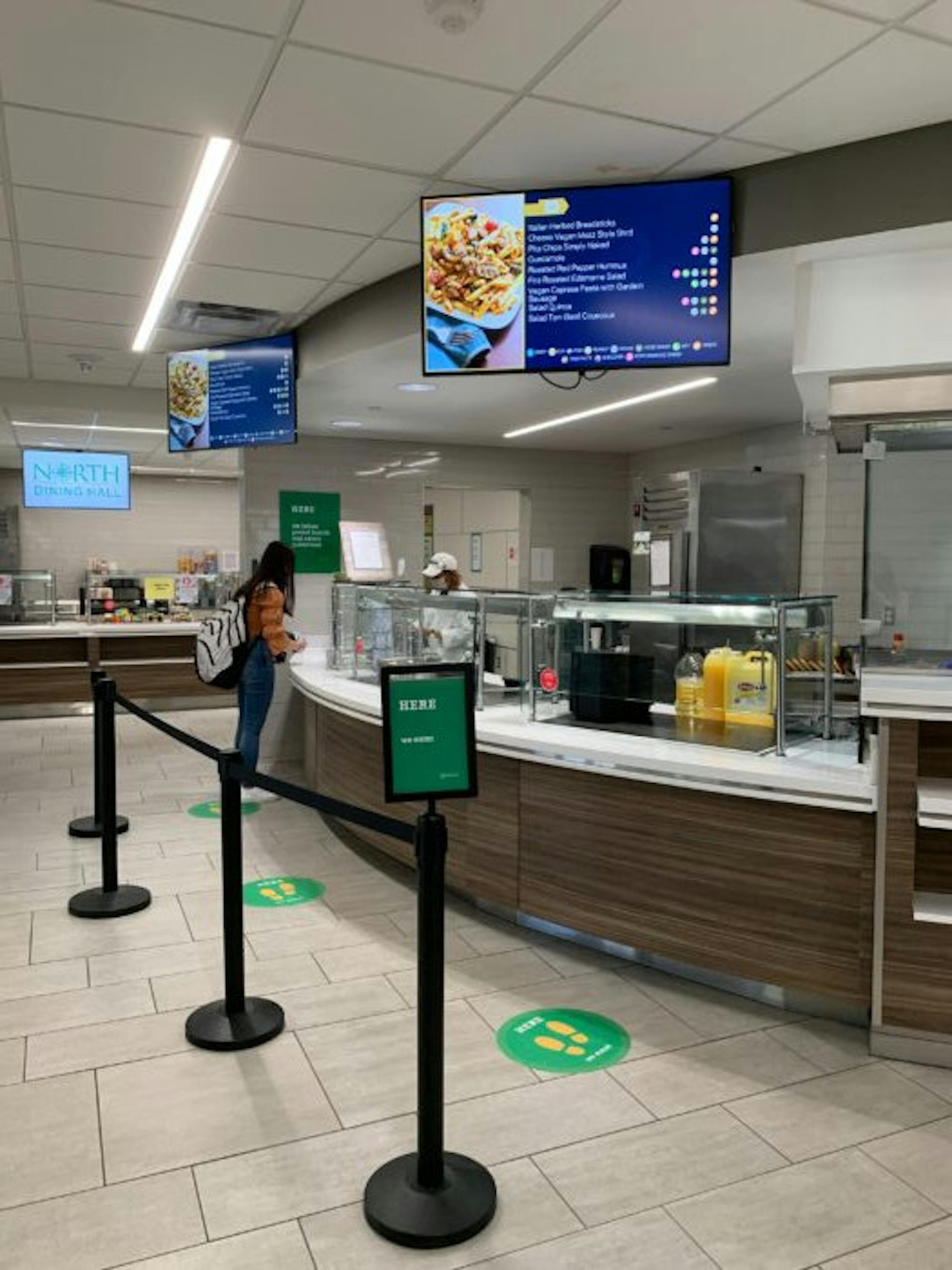During the month of March, the Notre Dame Student Government Department of Sustainability is encouraging Notre Dame students to eat less meat in response to environmental, health, labor and animal treatment concerns. North Dining Hall.
Two students in the Department of Sustainability, junior Alexander Kuptel and senior Rhetta Eubanks wrote a letter to the editor about Meatless March last week. The letter urged students to consume less meat this month and explored several reasons to make gradual dietary changes.
“Meat is harmful to the environment. It’s harmful to your body. It’s harmful to people that work in the industry,” Eubanks said in an interview.
The published letter included a link to a Google form pledge where students can commit to avoiding red meat for lunch during the month of March. As of Sunday afternoon, Kuptel said over 30 students signed the Google form pledge and joined the email list to stay informed about the effort.
The Meatless March team writes weekly newsletters, delivered every Friday, to those who have signed the pledge. These emails include features on meatless dining hall meals, vegetarian recipes and general updates on the movement.
Eubanks said she hopes that even more students will join the Meatless March effort soon since the sustainability commissioners in each dorm will be publicizing the effort among residents this week.
On top of raising student awareness, the Meatless March team is also actively working with Campus Dining to offer more meatless options.
In response to requests from the Department of Sustainability, Campus Dining agreed to replace many beef-based lunches with non-beef or vegetarian options and replace the Malibu burger with the Field Roast burger, a plant-based meat alternative. Kuptel said the sustainability department will be promoting and sampling the Field Roast burger later this month.
Eubanks said the Meatless March effort places the most emphasis on eliminating red meat because it causes the most environmental damage.
“When I very first read about the impact of meat, specifically beef, on the environment, I was just blown away,” Eubanks said. “It’s not something that we really talk about. It’s something that we eat so often and kind of take for granted, but it’s horrible for the environment.”
Christian Smith, a faculty member of the sustainability minor who studies the sociology of food, confirmed red meat is extremely harmful to the environment.
“It takes a lot more energy to produce a unit of meat, or protein or however you want to measure it by raising especially cattle but also pigs, goats and sheep,” Smith said. “It’s very energy intensive, so it contributes to global warming.”
Smith also said the meat industry and the beef industry in particular contribute to a myriad of other problems, including synthetic fertilizer use and topsoil erosion due to the corn produced to feed cows and the inhumane living conditions that make beef a pathogen risk often laced with antibiotics. Additionally, butchers and meat packaging factories often raise labor concerns involving undocumented workers and unfair wages, Smith said.
Both Kuptel and Eubanks said Meatless March is not designed to be an all-or-nothing approach. Even just limiting meat consumption once a day can make a difference, they say.
“Just doing it one time a day is much easier than trying to not eat any red meat at all,” Eubanks said. “While it doesn't seem like that much, it is still insanely helpful, especially the more people that we can get to do it.”
Kuptel acknowledged the climate change problem is much bigger than one Notre Dame student, but still emphasized the importance of thinking critically about meat consumption.
“The unfortunate situation about the environmental crisis is that our individual actions can’t do much, but they drive systemic change,” Kuptel said.
Smith agreed small changes can contribute to systematic ones.
“It isn’t a stark option, like you have to become a vegan and totally change your whole lifestyle in order to be concerned about these things,” Smith said. “There are now a range of possibilities that open up.”
Smith also said while Notre Dame might be a small contributor, it could become a catalyst to normalize concerns about red meat at other institutions.
“What’s happening at Notre Dame is actually one little piece of a much, much wider spread, quite significant movement,” Smith said.
Eubanks said Notre Dame is a well-suited environment to further this cause because of its size and students’ drive to promote positive change.
“With a place as big as Notre Dame and with people that are as value-oriented as Notre Dame students are, I think sustainability is a way that we can make a really big difference,” Eubanks said.
Those who want to join the Meatless March effort can fill out the Google form to learn more about meat consumption sustainability.













